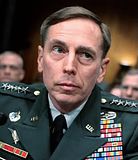Here is some of that Good News from Iraq™ that Laura Bush talked about. The NY Times reports As Fears Ease, Baghdad Sees Walls Tumble.
Market by market, square by square, the walls are beginning to come down. The miles of hulking blast walls, ugly but effective, were installed as a central feature of the surge of American troops to stop neighbors from killing one another.
“They protected against car bombs and drive-by attacks,” said Adnan, 39, a vegetable seller in the once violent neighborhood of Dora, who argues that the walls now block the markets and the commerce that Baghdad needs to thrive. “Now it is safe.”
The slow dismantling of the concrete walls is the most visible sign of a fundamental change here in the Iraqi capital.
Except that’s not the whole story. McClatchy Newspapers explained Assassinations are replacing car bombs in Iraq.
U.S. and Iraqi officials are seeing a shift in violence in Iraq from mass car bombings to assassinations using magnetic bombs, weapons with silencers and bicycle bombs. As provincial elections approach, some officials worry that assassinations will increase as political parties try to eradicate their competitors.
“Some of the organizations that are seeking political power are resorting to intimidation and violence,” said Maj. Gen. Michael L. Oates, the commander of the Army’s 10th Mountain Division, whose area of command includes most of southern Iraq. “So you’ll see individual bombs used against a prominent member of a party. I personally think we will see an uptick of that type of violence as we go into the election cycle because . . . the way some people deal with political tension here is to eliminate the other parties by using violence.”
And sure enough, the NY Times reports a day earlier that a Roadside bomb in Baghdad killed a Shiite legislator. “The legislator, Saleh al-Ugaili, had just left his home in Sadr City and was on the way to Parliament inside the fortified Green Zone when his unarmored sport utility vehicle hit the bomb, according to several witnesses. Mr. Ugaili suffered severe head injuries and died at the hospital. A passer-by on a motorbike was also killed, and two of the official’s companions were wounded. The attack happened near a busy traffic circle known to locals as Al Hamza, almost 200 yards from an Iraqi Army checkpoint.”
As a result of the assasination, the LA Times reports Shiite fighters clash with Iraqi, U.S. troops in Baghdad.
Clashes between Shiite Muslim militants and U.S. and Iraqi troops erupted in east Baghdad on Thursday night when groups loyal to anti-U.S. cleric Muqtada Sadr accused Washington of orchestrating the assassination of a popular lawmaker…
Baha Araji, a lawmaker with Sadr’s bloc, accused the Iraqi military of lapses in security and suggested two reasons that the assassins may have targeted Uqaili’s convoy: as punishment for the Sadr bloc’s opposition to renewing a security agreement extending the U.S. troop presence in the country, and to weaken the bloc’s representation in parliament in the upcoming elections…
In other developments Thursday, a bomb exploded near a minibus in Baqubah, about 35 miles northeast of Baghdad, killing a Sunni Arab fighter with the Awakening movement that has worked with U.S. troops against Islamic militants. His wife, daughter and son were also killed.
A bomb detonated near a restaurant in Tall Afar, killing two people, including a police officer.
Sorry Laura. I still think you’re full of crap subprime mortgage backed derivatives.
 The Washington Post reports Gen. David Petraeus mounts strategy review to focus On Afghanistan and wider region, including Pakistan, Iran, and Iraq. “The effort in Afghanistan is going to be the longest campaign of the long war,” he said.
The Washington Post reports Gen. David Petraeus mounts strategy review to focus On Afghanistan and wider region, including Pakistan, Iran, and Iraq. “The effort in Afghanistan is going to be the longest campaign of the long war,” he said.
 Here’s a good sign. The Hill reports
Here’s a good sign. The Hill reports  The Washington Post reports
The Washington Post reports  Researchers in China have estimated that 30,000 or more “Internet police” monitor online traffic, Web sites and blogs for political and other offending content in what is called the Golden Shield Project or the Great Firewall of China…
Researchers in China have estimated that 30,000 or more “Internet police” monitor online traffic, Web sites and blogs for political and other offending content in what is called the Golden Shield Project or the Great Firewall of China…